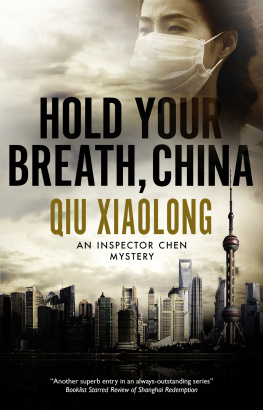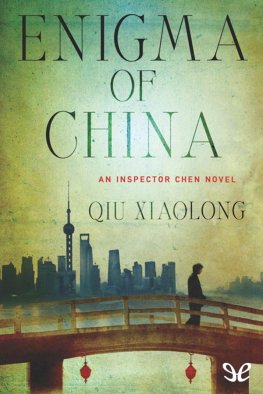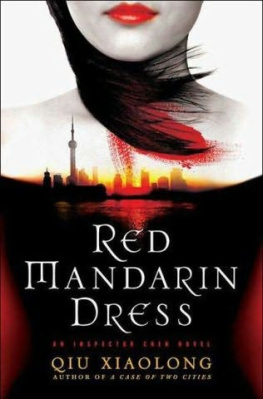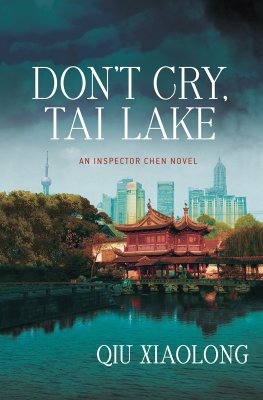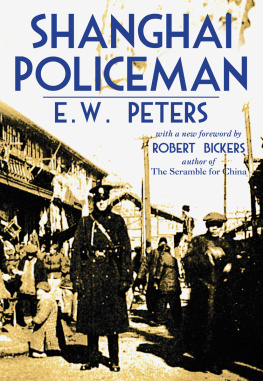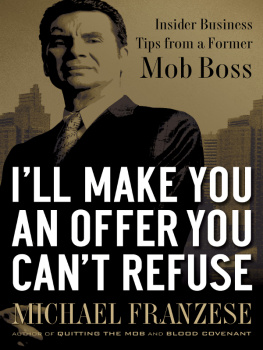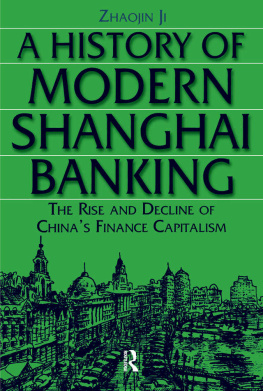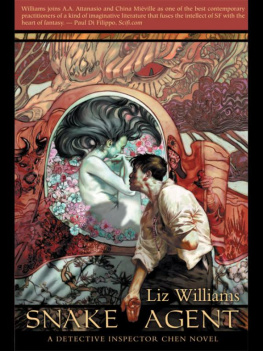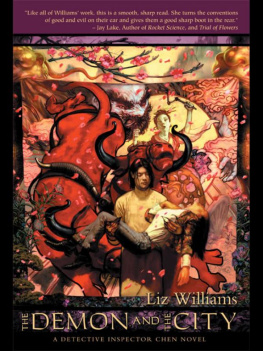Chapter 1
etective Yu Guangming of the Shanghai Police Bureau stood alone, still reeling from the blow. Its impact had been slow in coming, but when it came, it nearly crushed him. After months of meeting after meeting, negotiation after negotiation, he had lost the promised apartment in Tianling New Village. It was a new apartment, and had been officially assigned to him; the assignment had even been announced, to thunderous applause, at the bureau.
In the overpopulated city of Shanghai, home to more than thirteen million people, the housing shortage was grave. The assignment of an apartment was a significant event. For many years, it had been up to ones work unitthe Shanghai Police Bureau for Yuto decide which of its employees would get a room or an apartment from the units annual government allotment. As recognition of his outstanding service of more than a decade, Yu had finally been awarded a two-bedroom apartmentor at least the keys to it. But before he could even make plans to move, the apartment had been unexpectedly taken back.
Yu was standing in a small courtyard, littered with dust-covered odds and ends, the discards of all the families living in this old shikumen-style building, which housed no fewer than twelve families, including his. The ancient courtyard looked like a junkyard, which was what his mind felt like. He lit a cigarette.
The explanationor pretextfor the withdrawal of the apartment involved the adjustment of debts among the state-run companies. A creditor of another state-run company had seized some of the new apartments in Tianling New Village just built by the Golden Dragon Construction Corporation. Among them was the very unit assigned to Yu. This reversal of fortune was absurd; it was as if a roasted Beijing duck had flown back into the sky.
A few days earlier, when delivering the bad news, Party Secretary Li of the Shanghai Police Bureau had had a long talk with Yu before concluding, as always, on a characteristic positive note: Economic reform is ushering in great changes. A lot of these changes would have been unimaginable two or three years ago. Our housing system is affected too. Soon, Chinese people will no longer have to depend on a government-housing quota. My brother-in-law, for example, recently bought a new apartment in the Luwan District. Of course, you are still at the top of the list here. The bureau will take your case into special consideration. Even in the event you purchase an apartment in the future, we may be able to get some housing compensation for you.
This was to be his consolation!
After more than forty years during which housing in the city had been government-assigned, a new policy made it possible for people to buy their own apartments, but, as the saying went, Policy may change three times in a single day. No one could foretell the future of reform in China. For Party Secretary Lis brother-in-law, owner of several expensive restaurants and bars, there had been no problem in purchasing an apartment at the price of four thousand Yuan per square foot. For Detective Yu, a low-level cop with a monthly salary of around four hundred Yuan, such an expenditure was a dream he could not dare to dream.
But I have already been awarded the apartment, Yu had said stubbornly. It was a formal bureau decision.
I understand. Its not fair to you, Comrade Detective Yu. Believe me, we have tried everything possible on your behalf. We are all aware that you have done an excellent job as a police officer. But we have done all we could. We are sorry.
Lis smooth talk did not change the hard fact: Detective Yu had lost the apartment.
It was going to be a terrible loss of face too. His friends and relatives had learned about his new apartment, all of them had congratulated him, and some of them had prepared for a house-warming party. Now what?
But what worried him far more was the reaction of his wife, Peiqin. During the fifteen years of their marriage, they had always been, Holding hands together, talking, talking, talking, in the words of a popular song. Since their days as educated youths sent to Yunnan during the Cultural Revolution, and then as one of millions of ordinary couples in Shanghai, they had always been close. Of late, however, she had seemed withdrawn.
This was not hard for him to understand. All those years, he had brought little home in comparison to her. It was undeniable, and occasionally unbearable too, that Peiqin earned more as a restaurant accountant than Yu as a policeman. And this gap had increased in the last few years, as Peiqin had received many bonuses. Not to mention the free delicacies that she brought home from the restaurant. The initial announcement about the apartment had momentarily pulled him up a peg or two, so to speak, in both their estimations. She had been ecstatic, telling everybody about the apartment he had been given because of his excellent work.
Since they got the bad news, though, she had hardly spoken. He contemplated this, the cigarette burning down between his fingers. Just another sign that as a low-level policeman in todays society, he was going nowhere.
In his fathers days, Old Hunter, a cop too, had at least enjoyed the dignity of being part of the proletarian dictatorship and the knowledge of being equal in material terms with everybody else in an egalitarian society. Now in the nineties, it was a changed world: ones value was ones money. Comrade Deng Xiaoping had said, Some should be allowed to get rich first. Some did, absolutely. And in this socialist country, becoming rich now meant becoming glorious. As for those who did not become rich no matter how hard they worked, the Peoples Daily had no comment.
A conscientious cop, Detective Yu did not have so much as a room of his own, although he was already in his early forties. The one single room in which he had lived with Peiqin and their son Qinqin since their return to the city in the early eighties, had originally been a dining room, in the wing of the house that had been assigned to Old Hunter in the early fifties.
Peiqin had not really complained, but after this apartment fiasco, her silence spoke volumes. She had once questioned his dedication to police work, although not directly. In this time of economic reform, it was possible for people to make their own career choices, even if some paths involved risk. As a cop, Yu had his iron rice bowl which, for many years, had meant life-long job security in Chairman Maos communist Utopia. The ironunbreakablerice bowl was a synonym for a permanent job, with guaranteed income, medical benefits, and food ration coupons. But now having an iron rice bowl was no longer so desirable. Geng Xing, one of Peiqins former colleagues, had quit to run a private restaurant, and, according to Peiqin, made five or six times more than at the state-run restaurant. Peiqin had talked about Gengs choice as if expecting some response from Yu, he remembered.
This was a crisis, Detective Yu concluded somberly, grinding out his cigarette butt on the concrete sink in the courtyard, before he went back to their room.
Peiqin was washing her feet in a green plastic basin. She remained seated, hunched over on the bamboo stool, without looking up. There were puddles of water on the floor. Inevitable. The basin was too small. She could hardly flex her toes in it.
In their educated youth days in Yunnan, now almost like another life, Peiqin, sitting beside him, had dabbled her feet in a brook, a clear, peaceful brook that ran behind their bamboo hut. At that time, their one and only dream was of coming back to Shanghai, as if everything would then unfurl before them like the rainbow against the blue sky. A flash of light on a blue jays wings. Then a shrimp in the water had seized her toe, and she had fallen against him in panic. They had returned to the city in the early eighties, but only to this single twelve-square-meter room, to the realities of life. Few of their hopes had been fulfilled except for the birth of their son Qinqin, who had grown into a tall boy. For them, the rainbow over that distant brook had long since disappeared.
Next page

